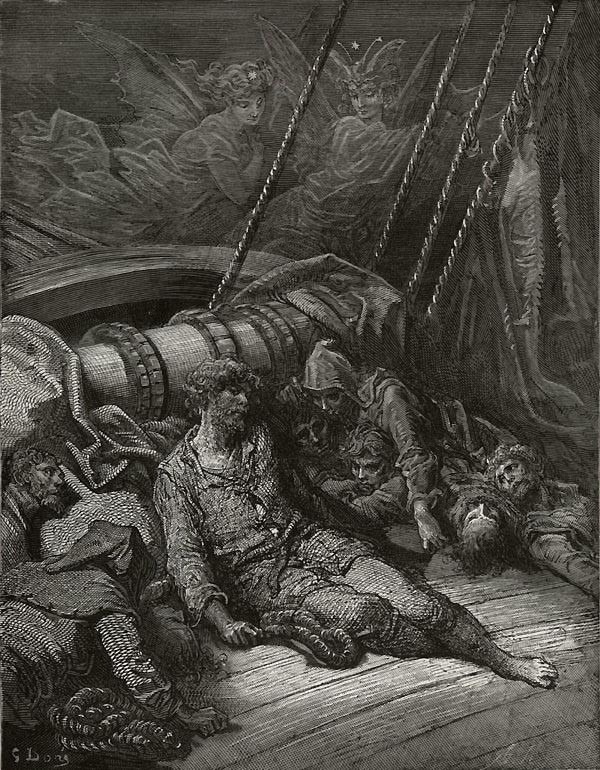Tuesday
I posted Friday on the water crisis in Flint, Michigan with passages from Tobias Smollett’s Humphry Clinker. Here’s a relevant work that you are probably more familiar with: Coleridge’s Rime of the Ancient Mariner.
The mariner shoots an albatross rather than making an executive decision that leads to the inadvertent poisoning of a city. Both actions, however, involve a high degree of arrogance. The mariner may want to assert that he, not the albatross, is responsible for the fate of the ship. Governor Snyder, thinking that he rather than democratically elected officials was more capable of running Flint (and various other municipalities), pushed through an “emergency management law” that gave him supreme executive authority.
His decision, like the mariner’s, proved disastrous. Like the mariner, he left a population without drinkable water. As Coleridge memorably puts it,
Water, water, every where,
And all the boards did shrink;
Water, water, every where,
Nor any drop to drink.
To push the comparison further, we could say the mariner’s “slimy things” are the lead particles in the Flint water. In any event, Flint residents are feeling a similar abhorrence for their water:
The very deep did rot: O Christ!
That ever this should be!
Yea, slimy things did crawl with legs
Upon the slimy sea.
About, about, in reel and rout
The death-fires danced at night;
The water, like a witch’s oils,
Burnt green, and blue and white.
The poem tells us that there is salvation for the mariner only he undertakes acts of penitence. (“This man has penance done,/And penance more will do.”) Once he takes on the necessary tasks, the mariner learns to love “all creatures great and small.”
If Governor Snyder were truly to take the plight of his Flint constituents to heart, he could achieve some degree of absolution. He can’t entirely undo what he has done but he could mitigate some of the effects of the lead.
It would be a noble effort. But it won’t happen until, like the ancient mariner, he faces up to what he did.
So far, unfortunately, he seems unwilling to back up his sympathetic talk with meaningful action. We have yet to see real penitence. But one can hope.
